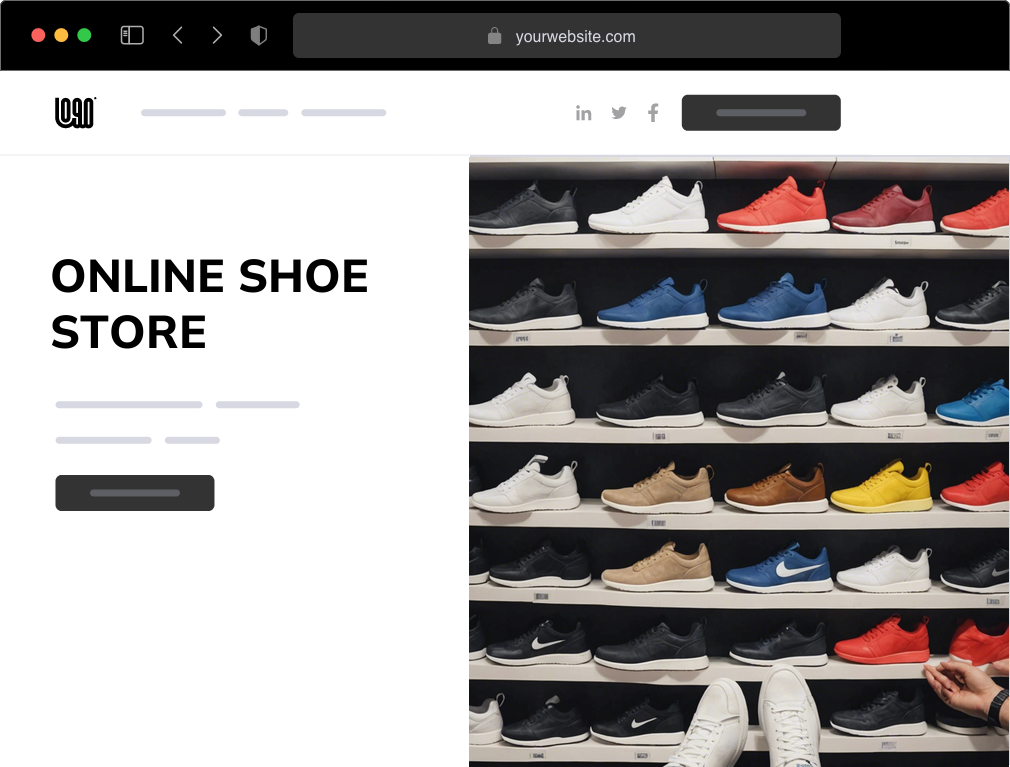Explore Pandabuy Shoe Store for Exclusive Styles and Limited-Edition Shoes
Explore Pandabuy Shoe Store for Exclusive Styles and Limited-Edition Shoes
Blog Article
Top Trends in Shoes Ecommerce for 2024: What You Required to Know
As we come close to 2024, the landscape of footwear eCommerce is poised for substantial transformation, driven by innovative fads that promise to reshape consumer communications and buying habits. Key developments such as AI customization, sustainability efforts, and the surge of social business are set to redefine how brand names connect with their target audiences.
Rise of AI Personalization
The increase of AI personalization in the shoes eCommerce industry is improving the means customers involve with brand names. As merchants leverage progressed formulas and artificial intelligence, they can currently customize the buying experience to specific choices, improving client fulfillment and commitment. Via data evaluation, AI systems recognize patterns in customer behavior, allowing brand names to offer customized product recommendations, promotions, and material.
For circumstances, dynamic item screens adjust in real-time based upon user communication, making sure that customers exist snappy that reverberate with their tastes. This degree of personalization not just enhances the shopping experience however also drives conversion prices, as consumers are much more most likely to buy items that line up with their choices.
Furthermore, AI-driven chatbots provide individualized assistance, leading customers with the acquiring process and resolving queries in a prompt manner. This improved communication fosters a much deeper link between brands and consumers. As eCommerce proceeds to evolve, the combination of AI customization will be essential in differentiating effective shoe sellers from their rivals, permitting them to create special, interesting experiences that resonate with the contemporary customer. Welcoming this trend is crucial for brands aiming to prosper in the affordable landscape of 2024 and past.

Sustainability in Footwear
Stressing sustainability in footwear has actually come to be an important emphasis for brands as consumers significantly focus on eco-friendly methods. The shoes industry is responding by adopting sustainable materials, moral production methods, and clear supply chains. Brand names are currently making use of recycled products, such as plastic and rubber, to create fashionable and resilient footwear. This change not just decreases waste but also allures to ecologically conscious consumers.
Additionally, companies are executing ingenious production techniques that reduce carbon impacts. 3D printing and automated manufacturing processes reduce product waste and power usage. Many brand names are dedicating to moral labor practices, ensuring reasonable earnings and risk-free working conditions for their staff members, which resonates strongly with today's socially mindful consumers.
To enhance sustainability initiatives, brands are also concentrating on the idea of circularity. This includes take-back programs that urge clients to return old shoes for refurbishing or reusing, consequently prolonging item life and lowering garbage dump waste. As the demand for lasting footwear remains to increase, companies that focus on environment-friendly practices will likely obtain a competitive edge in the industry, fostering brand name loyalty and attracting brand-new clients committed to sustainability.
Growth of Social Business
Maximizing the surge of social networks platforms, brands are significantly integrating social commerce right into their sales strategies, acknowledging its prospective to involve customers directly. This pattern has actually changed just how consumers find and buy footwear, with platforms like Instagram, TikTok, and Facebook developing into crucial sales channels.
Brands are leveraging shoppable messages, online streaming occasions, and influencer collaborations to develop immersive shopping experiences that resonate with their target audience. By using aesthetically attractive web content and genuine narration, footwear brand names best site can properly display their items and foster a sense of community among consumers.
Furthermore, the usage of user-generated material has actually come to be crucial in building trust and integrity. Customers are most likely to purchase footwear when they see actual individuals making use of and recommending the items. This organic form of marketing not only enhances brand commitment yet additionally drives conversions.
As the landscape proceeds to advance, footwear brands should stay active, adjusting to the most recent social commerce features while evaluating consumer behavior to enhance their techniques. By embracing this growth, brand names can record the focus of a wider audience, eventually enhancing and driving sales customer engagement in the affordable shopping market.
Digital Try-Ons and AR
Changing the on the internet shopping experience, virtual try-ons and augmented reality (AR) technologies are becoming essential tools for footwear brand names in 2024. These technologies permit customers to visualize just how footwear will certainly fit and look prior to buying, attending to among the most significant discomfort points in online buying: uncertainty about fit and style.
By leveraging AR, consumers can utilize their mobile phones or devices to see a sensible overlay of shoes on their feet. This immersive experience not only boosts interaction but likewise considerably reduces return prices, as purchasers are much more certain in their selections. With the expanding sophistication of AR innovation, footwear brand names can create customized experiences, permitting users to customize shades, patterns, and designs in real time.
Additionally, online try-ons are being incorporated right into social media platforms, making it less complicated for consumers to share their footwear selections with friends and seek viewpoints. As customers increasingly expect interactive and individualized shopping experiences, shoe brand names that take on digital try-on technology will get an affordable side. Inevitably, the integration of AR in ecommerce is not just a pattern; it is coming to be a critical component of the client trip in the shoes market.
Membership Versions and Services

These registration services typically include tailored quizzes that evaluate specific style preferences, sizes, and requires, making certain that consumers get choices that resonate with their preferences. In addition, several brands use flexible terms, allowing customers to pause or terminate registrations conveniently, more boosting consumer contentment.
In addition, registration versions can help in reducing the decision-making problem related to buying for shoes, as consumers exist with a selection that aligns with their choices. This technique not only fosters brand commitment however likewise encourages repeat acquisitions, as clients are much more likely to involve with brands that provide convenience and tailored service.
As ecommerce remains to advance, the combination of subscription services in footwear retail sticks out as a tactical action. It successfully meets the needs of contemporary consumers while driving continual revenue development for brands in an affordable market.
Conclusion
The advancing landscape of shoe eCommerce in 2024 underscores the relevance of AI personalization, sustainability initiatives, and social business as pivotal patterns shaping customer experiences. As you can find out more brand names increasingly take on sophisticated technologies such as digital try-ons and membership models, the emphasis on boosting client engagement comes to be extremely important. These growths not only reflect transforming consumer preferences but additionally suggest a broader change in the direction of a much more interactive, responsible, and tailored purchasing environment within the shoes market.
The rise of AI customization in the shoes eCommerce sector is improving the means consumers involve with brands. Via data evaluation, AI systems identify patterns in customer habits, making it possible for brands to offer personalized item suggestions, promotions, and web content.
Highlighting YOURURL.com sustainability in shoes has ended up being an essential emphasis for brand names as customers progressively focus on eco-friendly methods. Many brand names are devoting to ethical labor methods, making certain fair incomes and safe working conditions for their staff members, which reverberates strongly with today's socially aware consumers.
As consumers increasingly expect interactive and individualized buying experiences, footwear brand names that adopt virtual try-on modern technology will certainly acquire a competitive edge. pandabuy.
Report this page